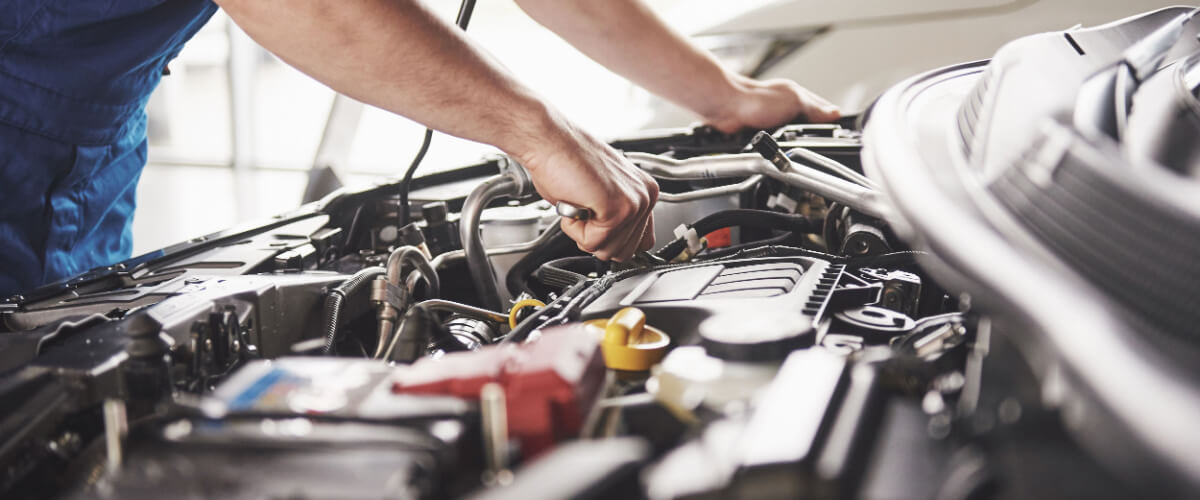Budget Listing for Car Repairs

So you are trying to budget your money for your automobile. We try to let you know when we do your service what kind of costs you could be looking at in the future. However, the parts that may need to be replaced will depend somewhat on the make, model, year, kind of driver you are and the number of miles you put on during the year. Some parts can be fairly predictable but there are still factors to consider – a driver who puts on mostly highway miles will have less brake wear than a person who drives in an urban setting.
Here is a list from most common to least common replaced to help you plan over the year based on the life of your car. Try to budget about $100.00 per month in an automobile account so you will always be prepared.
- Oil & Oil Filter – every 3 to 6 months, or every 5,000 to 10,000 kms. The type of oil is also a factor, synthetic oil can mean fewer oil changes.
- Wiper Blades – every 6 months to a year at the latest. These should be changed to reflect our extreme weather differences.
- Air Filter – twice a year in dusty or rural climates, once a year in urban centres or if not driven much.
- Brake Pads – every 3 to 5 years. Replacement frequency varies on the vehicle, (trucks will wear faster because of their weight), the type of pads you have and the type of driving you do.
- Battery – every 4 to 5 years. This doesn’t depend on mileage but extreme temperatures, and vibrations (diesels), can cause the battery to wear faster.
- Headlights and tail light bulbs – 5 to 7 years is normal. Rough and bumpy roads can shorten the life of a conventional bulb as well.
- Tires – Every 5 to 7 years depending on the number of miles driven, the type of driver you are and the wear rating. ( The higher the wear rating number the longer the tire should last).
- Spark Plugs – Platinum or iridium plugs should last about 8 years or 160,000 km. They might need to be replaced sooner if you drive short trips or you are burning oil from worn engine parts.
- Belts – Your serpentine belt is good for 80,000 kms or 4 years. Your timing belt needs to be replaced by 150,000 kms at the outside.
- Brake Calipers, Wheel Cylinders and Master Cylinder – usually by the 160,000 km range because they corrode over time. This is usually around the second time you need to replace your brake pads. Regular Brake Fluid Exchanges can double this life.
- Alternator – this may last the life of your vehicle or it may fail in about 6 years. How much draw on your electrical system is a factor.
- Fuel Pump – same as an alternator it may last the life of your vehicle or it could fail around the 6 year mark. Like your heart, the fuel pump runs constantly. It can be damaged by dirt, rust or moisture. Running out of gas or with very low fuel levels can starve the fuel pump making it fail.
- Water pump – again may last the life of your vehicle or it can fail at 6 years or more. It should always be replaced when your timing chain is done – this will save you money.
- Fuses – it might never happen but they are frequently replaced because of electrical problems. If you replace a fuse yourself you need to make sure to use a fuse with the same AMP rating as the original fuse. Failure to do so may result in a car fire.
- Engine Sensors – These should be good for 240,000 kms. However, a bad sensor will cause the check engine light to illuminate and set a code from your computer. An oxygen sensor is good for about 120,000 but can fail by coolant leaks or an engine that burns oil. Throttle position sensors can develop worn spots causing erratic readings. Crankshaft Position Sensors can develop internal cracks or shorts from exposure to engine heat that affect their output. Same for coolant sensors. Mass airflow sensors may become contaminated with dirt or fuel varnish.
- Muffler – most newer cars have stainless steel mufflers and will last a minimum of 10 years, perhaps a little bit less if they are exposed to road salt.
- 17 – Shocks & Struts – Around 80,000 kms you will feel these are getting noticeably soft. Replacement of these will restore your ride to a like new car and give much better handling.
- Clutch – Around 120,000 kms you might find a need for replacement. Poor driving habits or towing trailers, etc can decrease their life.
